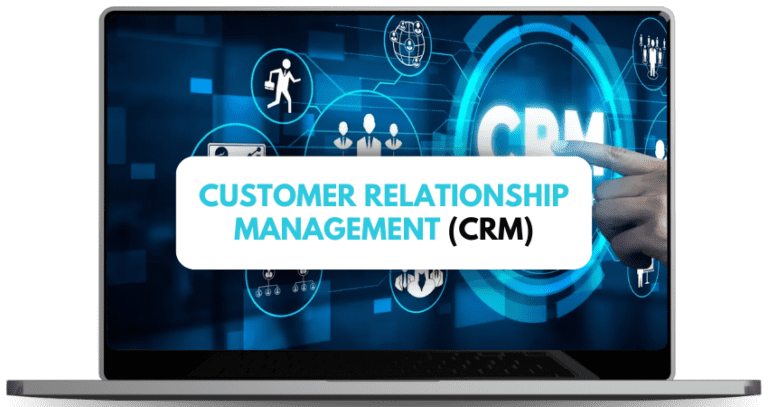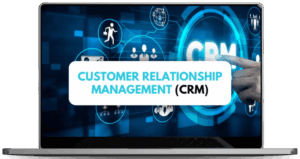Rocket CRM, a growing provider in customer relationship management (CRM) solutions, has announced updates to its automation capabilities, continuing its efforts to improve operational efficiency and simplify relationship management for businesses across various industries. With its platform accessible at https://rocketcrm.app, Rocket CRM has been steadily positioning itself as a tool designed to reduce manual work, centralize customer information, and enhance communication workflows through automation.
The newly expanded automation system builds on Rocket CRM’s original mission to help businesses organize, track, and manage their customer data effectively. These enhancements are focused on enabling users to automate repetitive tasks, trigger communications based on user behavior, and create structured pipelines for sales, support, and follow-up workflows. The automation features are designed with adaptability in mind, allowing small and medium-sized businesses to configure rules and logic based on their specific operational processes.

Key updates to the automation framework include event-based triggers, time-based workflows, and conditional logic functions that can be applied across various CRM modules. Businesses can now set rules for when and how communications are sent to leads and customers, manage assignment of tasks to internal teams, and maintain continuity in customer interactions without manual oversight. For instance, when a lead submits a form or responds to a campaign, Rocket CRM’s system can automatically segment that lead, assign it to the appropriate sales representative, and launch a follow-up sequence, all without requiring user intervention.
This system of automation is particularly useful for managing lead qualification, nurturing campaigns, deal progression, and post-sale engagement. Through automated tagging, email routing, and task reminders, the CRM helps ensure that no contact is overlooked and that customers receive timely and relevant communications throughout their journey. For service-based businesses, the system also supports appointment reminders, feedback requests, and customer retention workflows.
Rocket CRM’s automation module is integrated with the core CRM database, which allows automated actions to be executed based on real-time data changes. This integration eliminates the need for manual syncing or external triggers, and contributes to data consistency across departments. Additionally, users can track the performance of their automated workflows through reporting tools that highlight conversion metrics, engagement rates, and task completion status.
To support implementation, Rocket CRM provides users with pre-built templates for common automation workflows, including new lead onboarding, inactive contact re-engagement, deal follow-up sequences, and support ticket escalation. These templates can be customized or used as a starting point, allowing businesses to deploy automation without needing to build from scratch.
Another feature of the automation update is role-based access control for workflow management. Team members can be assigned permissions for viewing, editing, or executing automation rules, ensuring that the right individuals are responsible for maintaining process logic. This capability supports collaboration among departments, such as sales, marketing, and support, while preserving governance over critical workflows.
The automation system is also designed with flexibility in mind to allow businesses to expand or modify their workflows as their operations evolve. Rules can be paused, edited, or cloned without disrupting existing processes, and version tracking enables administrators to review changes over time. Combined with the platform’s visual interface, these tools allow non-technical users to build and manage automation paths intuitively.
Rocket CRM has emphasized data security and compliance throughout its development process. Automated workflows are governed by permission settings and audit logs, providing transparency into who triggered or altered any part of the process. The system also adheres to common data protection practices such as encryption, secure data storage, and user authentication, making it suitable for businesses handling sensitive client information.
In addition to its core CRM and automation functionality, Rocket CRM offers integrations with various third-party applications and services. These integrations allow businesses to pull in data from other platforms or trigger workflows externally, extending the reach of the CRM system. Examples include calendar integrations for scheduling, email service providers for campaign delivery, and accounting platforms for invoicing-related follow-ups.
The development team behind Rocket CRM reports that customer feedback played a significant role in shaping the new automation features. Many businesses sought greater customization options, more transparent workflow reporting, and tools that could scale with their growing customer bases. In response, the team prioritized modular architecture and user feedback loops to ensure that the updates addressed practical challenges in CRM use cases.
Moving forward, Rocket CRM plans to continue refining its automation system with the addition of AI-driven insights and predictive triggers. These features are expected to help businesses identify optimal timing for outreach, forecast customer needs, and reduce drop-off at critical stages of the customer journey. While still under development, these updates reflect a broader industry trend toward intelligent automation in CRM technology.
For users interested in accessing the new features, Rocket CRM has made the automation tools available to all current customers through its existing subscription tiers. Documentation, onboarding guides, and live support are provided to help businesses set up their workflows efficiently. The company is also conducting a series of webinars and training sessions to introduce users to best practices in CRM automation.
With its latest updates, Rocket CRM continues to develop as a platform intended to support the operational needs of modern businesses, particularly in environments where customer communication, lead tracking, and task management are core activities. By focusing on automation, the company aims to enable teams to concentrate on strategic initiatives while minimizing the burden of repetitive administrative work.
Businesses and teams interested in learning more about Rocket CRM’s automation features or requesting a demonstration can visit https://www.pressadvantage.com/story/77986-rocket-crm-announces-enhanced-automation-capabilities-in-its-crm-platform













